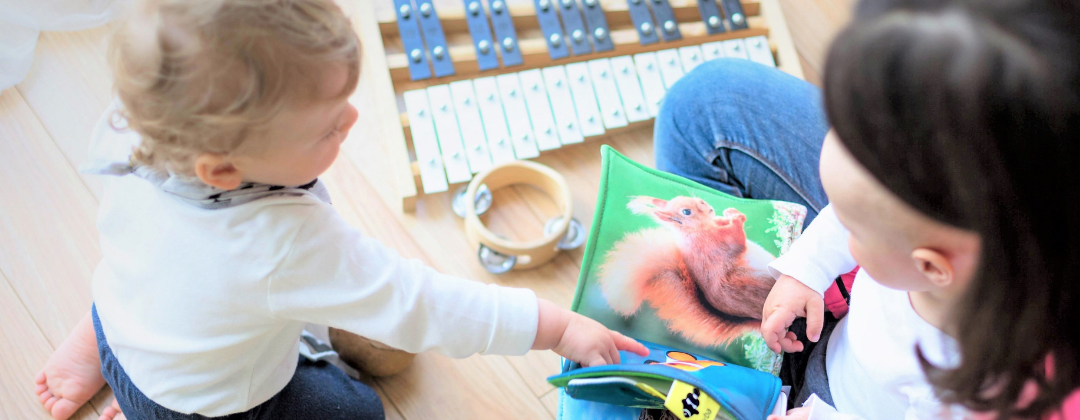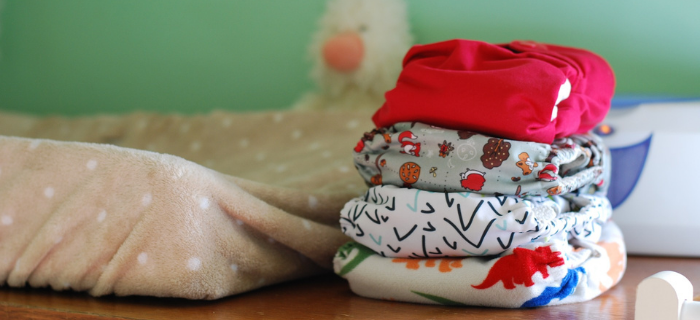7 #WasteNothing tips for babies!

How to reduce your waste with a new arrival
Even if you’ve managed to reduce waste in other parts of your life – like food shopping, cleaning or choosing clothes – a new baby comes along and suddenly the wheelie bin is groaning, and there are piles and piles of stuff strewn everywhere. There’s no denying that zero-waste ambitions are hard to keep up when you have a new addition to the family, so it’s best to start with some baby steps. These easy tips and swaps will help you manage your waste with a little one.
1. Don’t try it all at once
It’s no secret that the arrival of a new baby will completely change your day-to-day routines. There is no need to add any additional pressure or guilt as you adjust by trying to change everything at once. It’s not helpful to be too strict with what you do in the early days. Pick the tips and swaps that you think will work for you and then try them out one at a time. When you’ve tried one and adopted it as a regular change, or decided it doesn’t work for you, move on to the next thing and give that one a go. Carry on until you’ve tried out all the things that you can.
2. Think about if you really need it
It’s easy to be tempted by all the different gadgets, equipment and toys out there. Before buying anything ask yourself if you really need it and if you will get regular use out of it.
3. Look for a pre-loved version
When you work out exactly what you need, try to find it second-hand. For safety reasons not everything should be reused, so check before you do shop for pre-loved items. The National Childbirth Trust have a useful list of what you should buy new, and what is permitted to get second-hand.
Babies grow quickly, which means it’s easy to find used clothes that are still in a really good condition. You’ll also save money by buying second-hand. Here are some more ideas for buying clothes:
- Ask family and friends for hand-me-downs.
- Check out some charity shops – almost all will have a children’s section and there are some child specific ones like Children’s Hospice South West’s Little Steps Shop.
- Look on online reselling websites like Gumtree, Freecycle and Facebook Marketplace.
- Search for child-specific markets in your area. The Mum2Mum and Little Pickles markets are set up so parents and carers can sell to each other.
- Consider a subscription service. Belles and Babes rent capsule wardrobes to mums and babies so you can keep swapping your bundles as you both grow.
4. Revive the flannel!
Although wet wipes can be handy, most of them contain plastic and do not biodegrade. If flushed down the toilet they can block sewage pipes and can end up in rivers or the sea, and the plastic packets they come in cannot be easily recycled at the kerbside.
Reusable, washable wipes make a great cheap alternative to packaged single-use wet wipes. Remember the flannel? It is effectively a reusable, washable wipe. You can purchase ready-made reusable wipes or make your own from textiles such as old towels, blankets, or other suitable material cut to size and hemmed to prevent fraying. For more info take a look at the Nappy Gurus’ helpful guide on reusable wipes.
5. Give reusable nappies a go
On average, a child will need 4,000 nappies until they are potty-trained. Switching to reusable nappies is a really effective way to cut down on your waste and save money too!
The Bristol Cloth Nappy Library loan out nappy kits to help parents pick the best nappies for their children. They also have a Facebook group you can join for help and advice. The Bristol Eco-Friendly Shop and other Bristol shops sell cloth nappies in store and online.
If you want to work out which reusable nappies will be best for you, take the Nappy Guru’s quiz or read this Which? guide.

representing an estimated 2% to 3% of all household waste.
6. Pass on what you don’t need any more
You can pass on items that your baby no longer needs so that someone else can use them.
- Donate them – Baby Bank Network take donations and pass them onto families in need. Check their current wishlist and get in touch. If you need help sourcing items and would like to be referred to the Baby Bank Network, ask your health visitor, local children’s centre or other professional to contact them on your behalf. Items can also be donated to local charity shops.
- Sell them – try some of the places we mentioned above in tip #3.
7. Recycle what you can
- Clothing or textiles that can’t be reused can be donated to some charity shops as rags. Check with the shop first and put the items in a labelled bag so that the shop knows to send them for processing.
- Food waste produced by weaning babies is inevitable so make sure any that has ended up on the floor, walls or ceiling (and not in a mouth!) goes into your food waste bin for recycling.
- Baby food pouches are not recyclable at the kerbside but can be collected and taken to TerraCycle drop-off points for recycling.
